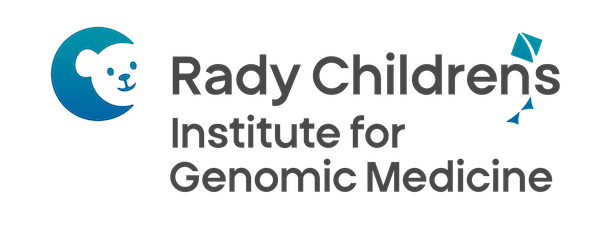A genome sequencing system for universal newborn screening, diagnosis, and precision medicine for severe genetic diseases
Am J Hum Genet. 2022 Aug 18:S0002-9297(22)00355-X. doi: 10.1016/j.ajhg.2022.08.003. Online ahead of print. ABSTRACT Newborn screening (NBS) dramatically improves outcomes in severe childhood disorders by treatment before symptom onset. In many genetic diseases, however, outcomes remain poor because NBS has lagged behind drug development. Rapid whole-genome sequencing (rWGS) is attractive for comprehensive NBS because it […]
An automated 13.5 hour system for scalable diagnosis and acute management guidance for genetic diseases
Nat Commun. 2022 Jul 26;13(1):4057. doi: 10.1038/s41467-022-31446-6. While many genetic diseases have effective treatments, they frequently progress rapidly to severe morbidity or mortality if those treatments are not implemented immediately. Since front-line physicians frequently lack familiarity with these diseases, timely molecular diagnosis may not improve outcomes. Herein we describe Genome-to-Treatment, an automated, virtual system for […]
Ultra Rapid Whole Genome Sequencing: A Paradigm Shift in the Pre-Transplant Evaluation of Neonatal Acute Liver Failure
Liver Transpl. 2022 Jul 21. doi: 10.1002/lt.26547. Online ahead of print. NO ABSTRACT PMID:35861277 | DOI:10.1002/lt.26547
Neonatal familial hemophagocytic lymphohistiocytosis diagnosed with ultrarapid whole-genome sequencing
Pediatr Blood Cancer. 2022 Jul 7:e29871. doi: 10.1002/pbc.29871. Online ahead of print. NO ABSTRACT PMID:35796407 | DOI:10.1002/pbc.29871
Better and Faster is Cheaper
Hum Mutat. 2022 Jun 20. doi: 10.1002/humu.24422. Online ahead of print. ABSTRACT The rapid pace of advancement in genomic sequencing technology has recently reached a new milestone, with a record-setting time to molecular diagnosis of a mere eight hours. The catalyst behind this achievement is the accumulation of evidence indicating that quicker results more often […]
The Role of Genome Sequencing in Neonatal Intensive Care Units
Annu Rev Genomics Hum Genet. 2022 Jun 8. doi: 10.1146/annurev-genom-120921-103442. Online ahead of print. ABSTRACT Genetic diseases disrupt the functionality of an infant’s genome during fetal-neonatal adaptation and represent a leading cause of neonatal and infant mortality in the United States. Due to disease acuity, gene locus and allelic heterogeneity, and overlapping and diverse clinical […]
Healthcare Professionals’ Attitudes toward Rapid Whole Genome Sequencing in Pediatric Acute Care
Children. 2022; 9(3):357. Abstract We aimed to characterize knowledge and attitudes about rapid whole genome sequencing (rWGS) implementation of a broad constituency of healthcare professionals at hospitals participating in a statewide initiative to implement rWGS for hospitalized neonates and children up to 18 years of age meeting clinical criteria for testing. We surveyed 307 healthcare […]
Evaluating use of changing technologies for rapid next-generation sequencing in pediatrics
Pediatr Res. 2022 Feb 3. doi: 10.1038/s41390-022-01965-5. Online ahead of print. ABSTRACT BACKGROUND: Rapid next-generation sequencing (NGS) offers the potential to shorten the diagnostic process and improve the care of acutely ill children. The goal of this study was to report our findings, including benefits and limitations, of a targeted NGS panel and rapid genome […]
Cost Efficacy of Rapid Whole Genome Sequencing in the Pediatric Intensive Care Unit
Front. Pediatr., 24 January 2022. doi: 10.3389/fped.2021.809536. ABSTRACT The diagnostic and clinical utility of rapid whole genome sequencing (rWGS) for critically ill children in the intensive care unit (ICU) has been substantiated by multiple studies, but comprehensive cost-effectiveness evaluation of rWGS in the ICU outside of the neonatal age group is lacking. In this study, […]
Addressing ethical and laboratory challenges for initiation of a rapid whole genome sequencing program
J Clin Transl Sci. 2021 Aug 9;5(1):e177. doi: 10.1017/cts.2021.833. eCollection 2021. ABSTRACT Rapid whole genome sequencing (rapid WGS) is a powerful diagnostic tool that is becoming increasingly practical for widespread clinical use. However, protocols for its use are challenging to implement. A significant obstacle to clinical adoption is that laboratory certification requires an initial research […]
